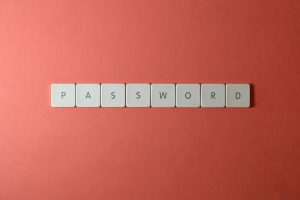Managing passwords has become a significant challenge as we rely more on digital platforms for everything from banking to social media. Every new account asks us to create a unique, complex password to protect our personal information. Using the same password for multiple accounts may seem convenient, but significantly increases your cyberattack vulnerability. This is where password managers come into play. Password managers help you store and organize your passwords securely and generate strong, unique passwords for each of your accounts. Explore why password managers are essential and how they enhance security and convenience in your digital life.
What is a Password Manager?
A password manager is a software application that securely stores and manages your passwords. It allows you to generate strong, random passwords for each of your online accounts, without having to remember them all. Most password managers work by storing these passwords in an encrypted database, which is protected by a master password. This means that instead of memorizing multiple passwords, you only need to remember one – the master password.
Password managers often come with additional features like password generation, automatic form-filling, and multi-factor authentication, providing an all-in-one solution for managing digital credentials. Many password managers are available across different platforms, including desktops, smartphones, and browsers, allowing you to access your passwords virtually anywhere.
Why You Should Use a Password Manager
The benefits of using a password manager extend far beyond just convenience. They play a critical role in enhancing your digital security in several ways:
- Strong, Unique Passwords for Every Account
One of the biggest mistakes people make is reusing passwords across multiple sites. If one account gets compromised, cybercriminals can access other accounts using the same password. Password managers help solve this problem by generating unique, complex passwords for each account. These randomly generated passwords are nearly impossible to guess, significantly reducing the risk of a data breach. - Protection Against Phishing Attacks
Phishing attacks occur when hackers try to trick you into giving up your login credentials by posing as a legitimate website. A password manager can recognize when a website is fraudulent and will not autofill your login details, which adds an extra layer of protection against phishing scams. This feature ensures that your login information is only provided to the legitimate site associated with your account. - Encrypted Storage for Sensitive Data
Password managers store your credentials in an encrypted vault, meaning even if someone gains access to your device, they won’t be able to access your passwords without the master password. Encryption ensures that your data is always protected, whether stored on your device or synced across multiple platforms. - Time-Saving Convenience
Managing dozens of different passwords manually can be frustrating and time-consuming. A password manager takes this burden off your shoulders by securely storing all your passwords in one place and automatically filling them in when needed. Many password managers also allow you to store sensitive information, such as credit card details and secure notes, further streamlining your digital experience.
Key Features to Look for in a Password Manager
When choosing a password manager, selecting one that meets your needs and offers robust security features is important. Here are a few key features to consider:
- Cross-Platform Compatibility: Ensure the password manager works across all your devices, including desktop computers, smartphones, and tablets. Many password managers offer browser extensions, allowing you to autofill passwords on websites easily.
- Password Generation: Use a password manager to generate strong, random passwords for each account. This helps you maintain strong security across all your logins.
- Secure Sharing: Some password managers allow you to share login credentials with trusted family members or coworkers securely. This feature can be especially useful for shared accounts that need to be accessed by multiple people.
- Multi-Factor Authentication (MFA): Choose a password manager that supports multi-factor authentication for an added layer of security. MFA requires you to provide two or more verification forms before accessing your account, which can help prevent unauthorized access.
- Regular Security Audits: The best password managers undergo regular security audits by third-party experts to ensure they meet the highest security standards. This ensures your data is stored safely and securely at all times.
Conclusion
In an era of increasing data breaches and cyber threats, using a password manager is one of the best ways to protect your online accounts. It eliminates the need to remember multiple passwords, ensures each account has a strong and unique password, and provides an extra layer of security against phishing attacks and other online threats. Integrating a password manager into your digital routine simplifies your online experience while safeguarding your personal information.








